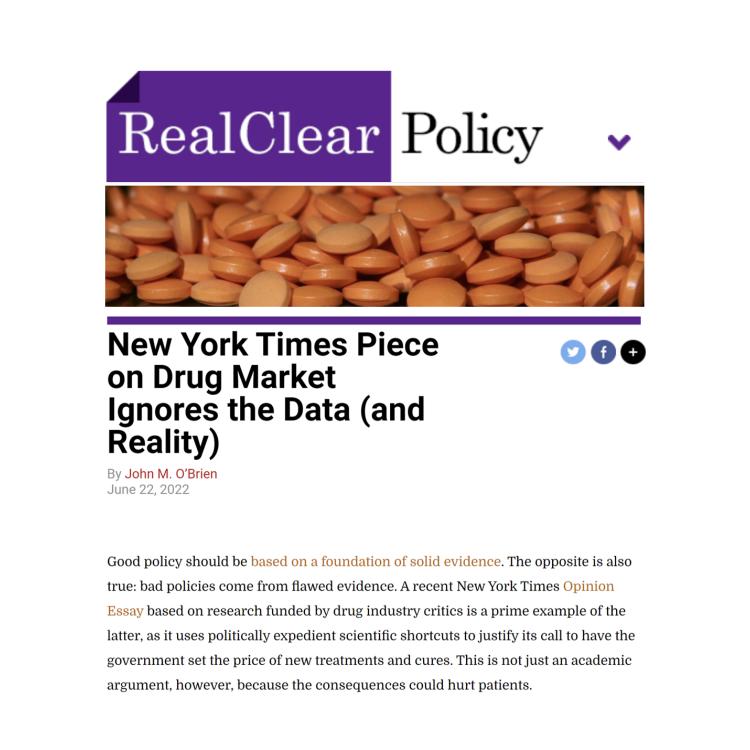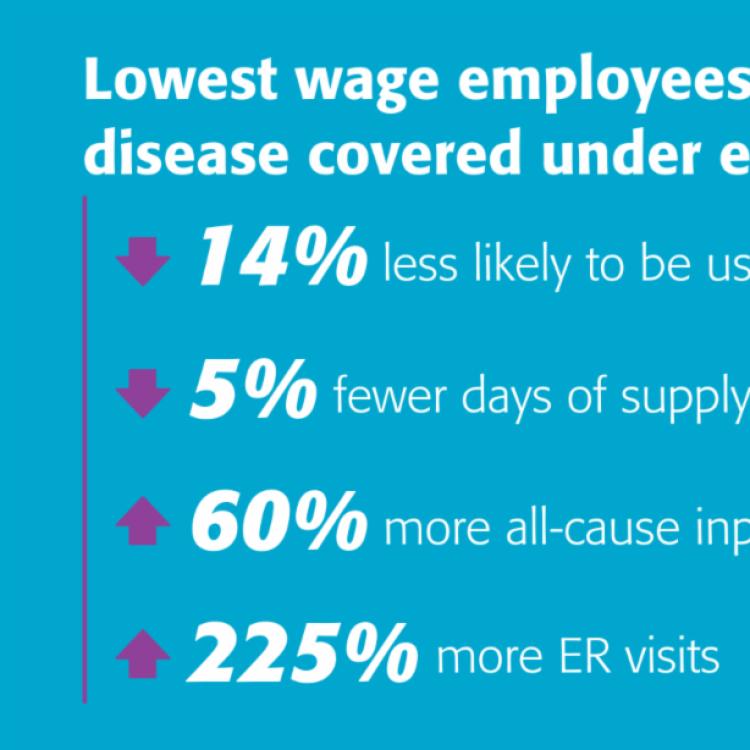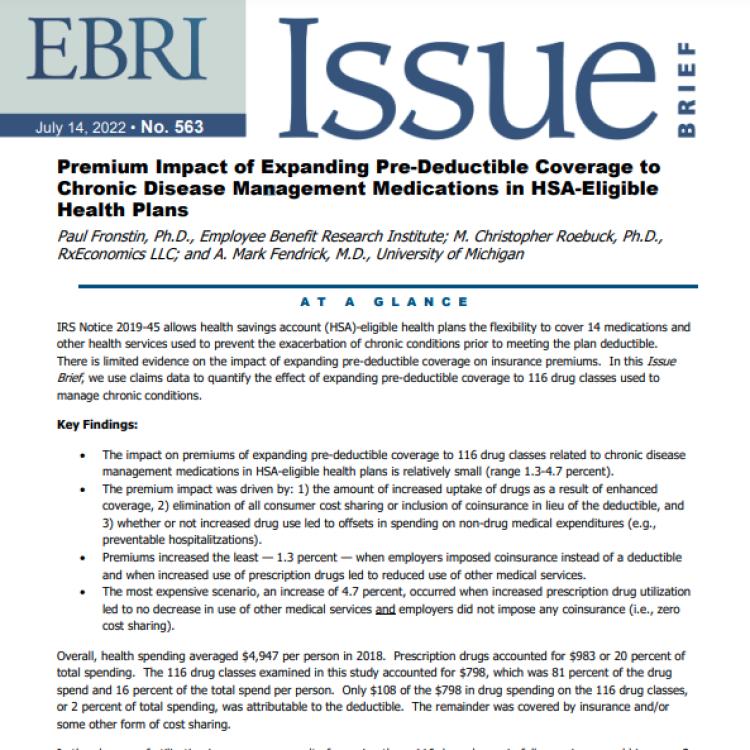 NPC Highlights
NPC Highlights

Using Evidence to Understand Drug Pricing Policy
Research is often missing or misused in the health policy discussion on drug pricing, leading stakeholders to overlook how efforts to regulate drug prices could impact the development of innovative treatments that can improve the health of patients.
In a recent commentary in RealClear Policy, NPC President and CEO John M. O'Brien highlighted why relying on bad science to justify government price-setting for new treatments and cures could have consequences for patients. The Wall Street Journal’s editorial board captured why government price controls are misguided and flagged the potential harms to patient health.

When the Paycheck Impacts a Patient's Access to Care
A study published in the Journal of Managed Care & Specialty Pharmacy explores how a person’s wages can impact their access to specialty medicines they’ve been prescribed to treat autoimmune conditions, including rheumatoid arthritis, multiple sclerosis and plaque psoriasis.
Researchers found that even though lower-wage employees were more likely to have autoimmune conditions, higher out-of-pocket costs meant they were almost 14% less likely to use specialty medicines than higher-income workers. As a result, lower-income employees relied more regularly on emergency room care.

Study: Big Benefit, Small Cost for Expanded Coverage
The Employee Benefit Research Institute published an NPC-supported analysis of what would happen to premiums if 116 drug classes related to chronic disease management medications were covered before the patient’s deductible was met. Authors found that expanding pre-deductible coverage would have minimal impact, ranging from 1.3 - 4.7%. The study builds on a study released in May that analyzed the same scenario in 14 chronic care services.
A. Mark Fendrick, M.D., study co-author and director of the University of Michigan Center for Value-Based Insurance Design said, “It is our hope that the main finding – that expanding pre-deductible coverage to over a hundred drug classes has a very small impact on premiums – will inform ongoing policy deliberations on how more generous coverage for essential chronic disease services can enhance equity and improve patient outcomes.”
 ICYMI
ICYMI
-
Study on Oral Anti-Cancer Medications – A study published in JMCP examined the factors affecting patient adherence to oral anticancer medications. Authors found that out-of-pocket costs are a leading reason.
-
Bringing the Patient Voice Into Benefit Design – NPC Chairman Steven Romano describes the need to incorporate patient perspectives into the process of designing benefits and coverage policies.
-
NPC Comments to CMS – NPC submitted comments to CMS regarding the Medicare Program's Hospital Inpatient Prospective Payment Systems. The letter focused on recent proposals related to the transition to National Drug Codes for New Technology Add-on Payments and recommendations regarding payment mechanisms to improve access to treatments for rare diseases and conditions.
-
New NPC Team Member – NPC recently welcomed Robert (Bob) J. Nordyke, PhD as vice president of research.
 Mark Your Calendar
Mark Your Calendar
NPC at AMCP Nexus 2022
October 11-14
During the Academy of Managed Care Pharmacy (AMCP) Nexus 2022, NPC is sponsoring the Student Pharmacist and New Practitioner Networking Event, Wed., October 12 from 6:30 p.m. - 8:30 p.m. at the Gaylord National Harbor in Maryland.
